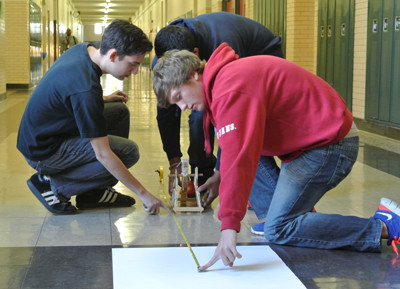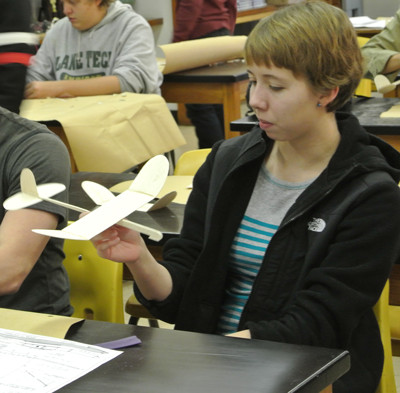Engineering
Engineering is, at the most fundamental level, the practical application of science and math for the development and improvement of technology which is utilized to meet societal needs, to advance human understanding and to further the accomplishments of humankind. Foundations of Engineering, one of the engineering courses offered at Lane, is intended to be an introductory course to introduce students to the fundamental principles, skills, tools and analytical reasoning utilized by successful engineers. The course is also a survey of the various disciplines of engineering introducing students to what each engineer does for society. The course allows students to explore the technological advances created by engineers and the technology that is utilized by practicing engineers.
Foundations of Engineering includes a lab/practical portion in which students utilize the principles learned in class through hand-on projects, lab testing and experiments. Students perform materials testing, prototype design, virtual design labs, and manufacturing labs. Students leave the course with an appreciation for the foundations of the engineering profession, the tools utilized by engineers, and the training each discipline of engineering must undergo.
The second engineering course offered at Lane is Engineering Design. This course is an introduction to engineering and machine design including the application of scientific principles to manufacturing processes and practical design considerations. This course involves a year-long project in which students will learn the process of design. The design process that the students learn begins with the assignment of a scenario for which they must design a product that satisfies the parameters of the scenario. The design process includes building a design schedule, discussion of prototype designs, continuous scientific design analysis, evaluation of economic considerations, presentations to their peers for feedback, and culminating in the construction and testing of a prototype. Throughout this process, students learn the iterative nature of design. Design is not simply a linear process in which one method is attempted and then evaluated or abandoned. Students work throughout the year refining and improving their design until they achieve a satisfactory design.

